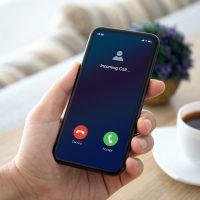Is It Legal For a PI to Record Telephone Calls?

Investigating can involve a bit of sleuthing. Sometimes, gathering evidence for a legal matter requires getting someone to admit to something they would never say in court. Can a private investigator legally record someone on a phone call without their consent? The answer turns on state law, and each state is different. Read on to learn about the “eavesdropping” laws in different states. If you are in need of private investigative services, call the savvy and effective intelligence-gathering team at Millennium Intelligence Agency (MIA).
At Least One Party Must Consent to the Recording
Different states have different laws concerning when it’s legal to record a phone call. There are, however, some commonalities: In every state, if all parties to a conversation agree to be recorded, then the recording is legal. If you are on a phone call with someone and you promptly inform them that they are being recorded, and they either explicitly consent or continue talking without objection (tacit consent), you are on strong legal grounds to continue recording without fear.
On the other hand, in just about every state it is illegal to record a conversation to which you are not a party, so long as the parties having the conversation have an expectation of privacy. Unless you represent a law enforcement agency with a warrant to tap a phone, recording someone else’s private phone call is almost always illegal. Not only will that recording be thrown out of court; illegally recording someone else’s private conversation is a criminal offense in most states.
It’s worth noting that eavesdropping laws generally apply to private conversations, not public conversations. Typically, parties to a phone call can expect privacy, unless they are talking loudly in a public place. Even then, it may only be legal to record one side of the conversation–the person who is speaking in public.
One-Party vs. Two-Party Consent States
If you are a party to a conversation, you might have the right to record the conversation. The legality turns on whether you are in a “one-party consent” or a “two-party consent” state.
In a one-party consent state, a conversation may be recorded so long as at least one participant in the conversation consents to the recording. If one party to the phone call chooses to record the call, then the recording is legal and does not violate the privacy rights of the other party. One-party consent is the predominant rule: 39 states and the District of Columbia are one-party consent. New York, New Jersey, Oregon, Colorado, and many other states employ the one-party consent rule.
A minority of states require two-party consent. Despite the name, two-party consent means all parties to the conversation must consent to the recording. California, Illinois, Massachusetts, Pennsylvania, and Florida are among the states with a two-party consent rule. In California, for example, recording a private conversation or phone call without the consent of all parties involved is a criminal offense, chargeable as either a misdemeanor or a felony depending upon the circumstances. Using a machine to “tap” someone’s phone line is punishable as a separate offense pursuant to California’s prohibition on unlawful wiretapping.
If the conversation is held over the phone and involves people located in different states, the general rule of thumb is to follow the state law with the strictest requirements. If you make a call from New York to a person in California, it’s safer to assume California’s two-party consent rule applies.
If you are performing due diligence in advance of a settlement, gathering evidence for a pending litigation, working to establish a financial profile, or trying to locate a missing party, Millennium Intelligence Agency is ready to offer you vital support. Call our licensed, skilled, and thorough legal investigative team today at 213-986-9888 for experienced and skillful intelligence-gathering services.